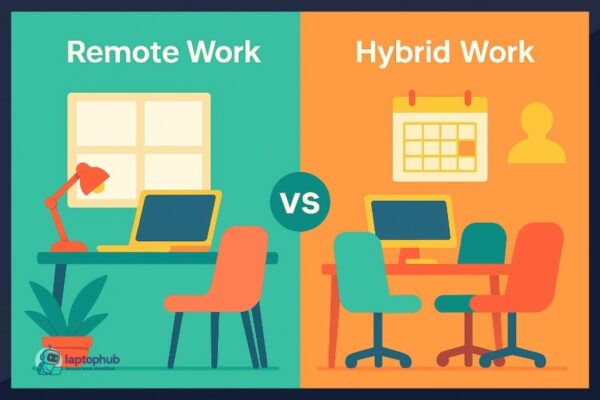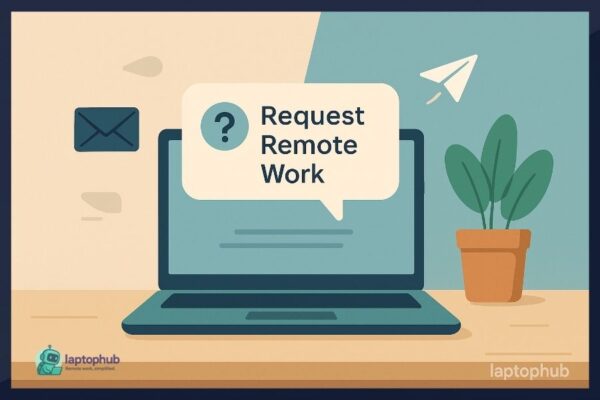Remote work myths have stuck around longer than dial-up internet. From the belief that no one’s really working to the fantasy of 24/7 freedom, these outdated assumptions still shape how people—and companies—approach remote jobs. But here’s the truth: remote work isn’t a loophole, and it’s definitely not a luxury. It’s a shift in how we operate, and getting it wrong can cost businesses money and workers their sanity. If you’re serious about remote success, it’s time to separate fact from fiction.
💡Key takeaways:
- Remote workers often log more hours and deliver stronger results than commonly assumed.
- Flexibility in remote work exists, but it depends heavily on structure, boundaries, and discipline.
- Communication, connection, and productivity don’t suffer with remote work—they just evolve.
- Remote work is legitimate, widespread, and no longer exclusive to tech-savvy professionals.
10 Common remote work myths
1. Remote workers don’t actually work
This is probably the most damaging myth out there.
There’s this outdated idea that if you’re not in a cubicle, you’re not being productive. Like proximity equals performance. Spoiler: it doesn’t.
The truth? Most remote workers log more hours, not fewer. Without a commute or office distractions, the day often starts earlier and ends later. There’s also that ever-present need to prove you’re available, responsive, and “on it,” which leads to people working through lunch, skipping breaks, or responding to Slack messages at 9 p.m.
A 2023 study by Owl Labs found that remote workers actually worked an average of 10% longer than their in-office counterparts. So no, they’re not taking naps between Zoom calls.
Reality: Remote work isn’t a vacation—it’s just work, in a different setting.
2. Working from Home = Unlimited Freedom
Instagram and TikTok love to show freelancers “living the dream”—sipping lattes on European rooftops, laptop open, sunlight perfect.
What they don’t show is the laggy Wi-Fi, time zone chaos, or the reality that work still needs to get done—no matter where you are.
Remote work offers flexibility, not total freedom. You might choose when and where to work, but clients still expect deliverables, managers still schedule meetings, and deadlines still exist.
If anything, discipline matters more when you’re remote. No one’s looking over your shoulder, so it’s on you to show up, manage your schedule, and stay productive.
Pro tip: Freedom without structure just leads to stress.
3. Remote work is less productive
This one keeps some companies from fully embracing remote policies. The assumption is: out of sight = out of mind = slacking off.
But multiple studies have shown that remote workers are not just productive—they’re often more productive. Why?
- Fewer interruptions
- Customizable environments
- Less time commuting
- Better focus on deep work
Productivity isn’t about physical presence—it’s about outputs, not time spent looking busy.
Managers who track goals and deliverables instead of screen time will see that productivity doesn’t drop—it shifts.
4. Communication suffers when you’re remote
This one’s tricky because communication can suffer—but only if you let it.
The truth is, remote communication just looks different. You don’t bump into coworkers in the hallway, but you can still build great working relationships via Slack, Zoom, Notion, or even a 15-minute virtual coffee.
It takes intentional effort. Teams that over-communicate, document decisions, and use async tools well tend to thrive remotely.
Good communication isn’t about location—it’s about clarity, frequency, and empathy.
5. You can work from anywhere, anytime
This myth gets repeated a lot—especially by digital nomad influencers. And while technically true, it’s not practical.
Yes, you can work from a different country. But:
- Do you have stable internet?
- Are you available during your team’s core hours?
- Can you find a quiet, focused workspace?
Remote work doesn’t mean you can be totally off-grid. Most clients and teams need some real-time overlap. And you still need to be reachable, especially if you’re in a client-facing role.
Freedom within limits is the more accurate description.
6. Remote workers are always lonely
Working remotely can be isolating—but it doesn’t have to be.
The difference comes down to how proactive you are about social interaction. Some folks thrive with solo work and a bit of structure. Others need regular calls, co-working, or IRL meetups to stay energized.
In reality, loneliness isn’t a remote work problem—it’s a connection problem. And it’s solvable:
- Join virtual co-working spaces
- Book regular check-ins with your team
- Set up coffee chats with peers
- Use Slack/Discord/WhatsApp to stay social
Being intentional about your community makes all the difference.
🖥️Also read: How to Feel Less Lonely Working from Home
7. Remote workers don’t need boundaries
If anything, remote workers need more boundaries—not fewer.
When your home is your office, it’s easy to start working as soon as you wake up… and stop right before bed. You eat lunch at your desk. You answer emails on weekends. Before you know it, the job has taken over your whole life.
Burnout isn’t a badge of honor. Without clear separation between work and personal time, remote workers can burn out fast.
Set working hours. Take real breaks. Create a routine. Log off. It’s not about being lazy—it’s about being sustainable.
🖥️Also read: Remote Work Life Balance: 12 Practical Tips That Actually Work
8. Remote work is only for tech people
Once upon a time, remote work was mostly developers, designers, and startup folks. Not anymore.
In 2024 and beyond, remote roles exist in every industry—sales, writing, finance, education, healthcare, HR, legal services, customer support, and more. With the rise of cloud tools and global collaboration, location is becoming less relevant for many roles.
It’s not about the industry. It’s about whether the work can be done digitally—and increasingly, the answer is yes.
🖥️Also read: Best Remote Job Niches in 2025 for High-Paying, Future-Proof Careers
9. Remote work means lower commitment
Some employers assume remote employees or freelancers aren’t “really invested” in the company. That’s a misconception.
Remote workers often go above and beyond—because they’ve worked hard to earn the trust to stay remote. They value the autonomy and flexibility, and don’t want to lose it.
If anything, you’ll often find remote workers are more loyal, more driven, and more efficient—especially when they feel trusted and supported.
10. It’s easier than office work
Remote work isn’t easier—it’s just different. You’re your own IT help desk, your own time manager, and your own accountability coach.
You need more initiative, more organization, and stronger communication skills than many office jobs demand.
You’re also balancing work with life—kids, errands, deliveries, noise—all from the same space. That takes emotional intelligence and flexibility, not just task management.
So if you think remote work is a way to “coast,” think again. The best remote workers are some of the sharpest, most self-driven people out there.
🖥️Also read: Remote vs Hybrid Work: What’s Best for You?
Want to Work Remotely? Start Here
Thinking about making the shift to remote work? You don’t need to be in tech or have years of experience—just the right approach.
Here’s how to get started:
- Play to your strengths. Writing, customer service, marketing, admin support, coding—if it’s done on a screen, there’s a remote job for it.
- Update your resume. Highlight self-management, communication, and any remote-friendly tools you’ve used (Zoom, Slack, Trello).
- Start small if needed. Freelance gigs, contract roles, and part-time projects are great stepping stones.
- Set up your space. A quiet corner, solid Wi-Fi, and a webcam go a long way.
- Show you’re remote-ready. Communicate clearly, meet deadlines, and be proactive.
Remote work isn’t just for a lucky few—it’s accessible, if you’re prepared.
Hiring Remote? Here’s What to Look For
If you’re building a remote team, skip the myth-driven thinking and focus on real indicators of success:
✅ Strong written communication
✅ Time management skills
✅ Self-motivation
✅ Problem-solving without hand-holding
✅ Clear portfolio or track record of remote work
And most importantly? Trust. Without it, remote work becomes surveillance. And no one thrives under a microscope.
FAQs
1. Is remote work actually productive?
Yes—when structured well, remote workers often outperform office-based teams in terms of focus and output.
2. Can anyone work remotely, or do you need tech skills?
Remote jobs exist across industries; you don’t need to be a developer—just adaptable and tech-literate.
3. Does working from home cause loneliness?
It can, but proactive communication and online communities help remote professionals stay connected.
4. Are remote workers held to lower standards?
Not at all; if anything, the expectations are higher when it comes to self-management and results.
5. Is remote work just a trend, or is it here to stay?
It’s here to stay—more companies are building remote-first teams and investing in long-term infrastructure to support them.
Final thoughts
Remote work isn’t a trend—it’s a shift. And like any shift, it takes time to understand and adjust.
It’s not a magic fix for work-life balance. It’s not a hack to escape effort. But done right, it gives people the space to do deep, focused work on their own terms—and that’s powerful.
So let’s stop repeating myths and start building better systems. Systems built on trust, clarity, flexibility, and accountability.
Because remote work isn’t the future anymore.
It’s the present.





